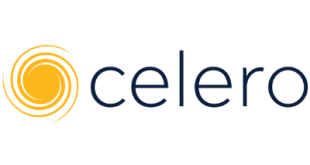We were no sooner digesting the latest—and rather dour—developments about Facebook’s Libra project than news broke last month that a group including a former chairman of the Commodity Futures Trading Commission was starting an initiative to develop a so-called digital dollar. Indeed, the group, which has enlisted the resources of the consulting firm Accenture Plc, is setting up as The Digital Dollar Foundation.
Digitizing the dollar promises faster transactions and better controls to combat money laundering. But the initiative has another important motive force. The Digital Dollar initiative is led by J. Christopher Giancarlo, who ran the CFTC from 2017 until last summer, a time during which new futures markets for Bitcoin came into being. Indeed, Giancarlo’s warm interest in the digital currency earned him, on social media, the sobriquet “Crypto Dad.”
For now, specifics about the Digital Dollar proposal are sketchy. Generally speaking, it will likely be based on blockchain and, unlike Libra, subject to central-bank regulation. As with Bitcoin or Libra, it will enable money transfers to occur much as we send text messages back and forth. To develop the details, the new foundation set up the Digital Dollar Project, which is expected to fill in at least some of the blanks and start taking public comments this summer.
To be sure, other countries are reportedly developing electronic versions of their national currencies. Accenture alone has worked on such projects for Canada, the European Union, and Singapore, and appears poised to advise Sweden similarly. But there are clearly reasons for the Digital Dollar beyond fear of falling behind other nations.
One such rationale has to do with the notion, which became widespread after the Libra concept was announced, that digital currencies should not be developed and administered outside the regulatory umbrella of central banks. Indeed, critics have argued a private-sector currency launched under the auspices of a corporation, particularly one with the privacy issues raised by Facebook, poses systemic risk that may not be easy to manage. Facebook, of course, said when it launched Libra that it would ultimately be just one player among many backing and processing the new currency.
We hold no brief for Libra, but neither do we place undue confidence in the wisdom of the Federal Reserve or other central banks. Right now, too many questions swirl around the Digital Dollar concept to make a fair comparison to other forms of electronic money. For example, what will this dollar token look like, and how long will it take to build this blockchain? How secure will it be against hackers?
In the meantime, we wish the project luck and hope soon to see further details.
—John Stewart, Editor, john@digitaltransactions.net





